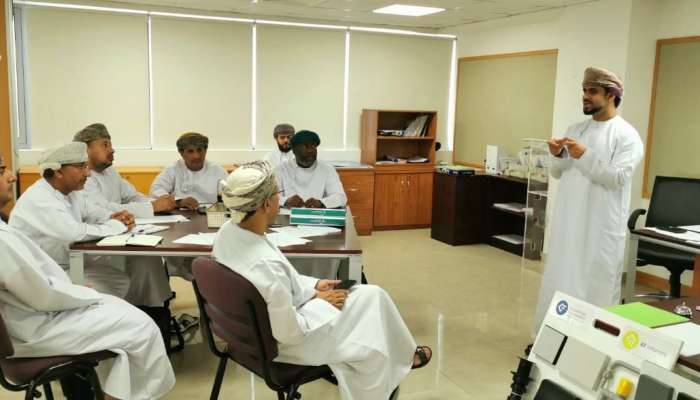
Muscat: The Ministry of Education, represented by the Directorate-General of Educational Supervision, began this week on Sunday, the training programme entitled “Technical Skills for Science Laboratory Supervisors in Light of Contemporary Technology.”
The programme continues for seven consecutive days and targets 37 senior supervisors and science laboratory supervisors in the governorate. The training programme is taking place at the Specialised Institute for Vocational Training for Teachers.
The training programme is presented by senior supervisors, supervisors, and technicians of science laboratories. It includes the presentation of 13 papers. The first paper was entitled “Using Modern Technology in the Biology Laboratory,” the second paper was titled “Using Electronic Sensors in the Chemistry Laboratory,” and the third paper was entitled “Using electronic sensors in physics laboratories.”
The fourth paper came under the title “Using the EasySence2 programme in chemistry experiments,” the fifth paper was titled “Factors affecting the rate of enzyme-catalysed reaction,” and the sixth paper was titled “The digital window for science laboratories in the educational portal, and a hardware system for science laboratory supervisors.”
The seventh paper was titled “Representing Sound Waves,” the eighth paper was titled “Science Laboratories Examination,” and the ninth paper was titled “The Momentum Conservation Experiment and the Micrometer Experiment.”
The tenth paper was entitled “Thomson’s Experiment,” the eleventh paper was titled “Principles and Sources of the Cambridge Method,” while twelfth paper was titled “Virtual Laboratory,” and the thirteenth paper was titled “Laboratory Waste Management.”
The presentation of papers also included discussions and questions from the audience.
The programme aims to train on alternatives to activating school laboratories in light of distance education, such as activating virtual laboratories, developing the skills of school laboratory technicians and supervisors in applying some scientific experiments that do not give accurate results.
The programme also aims to find alternatives to some experiments in the school curricula that are difficult to implement, and learn about philosophy of science series, and about the mechanism of disposal of hazardous chemicals.